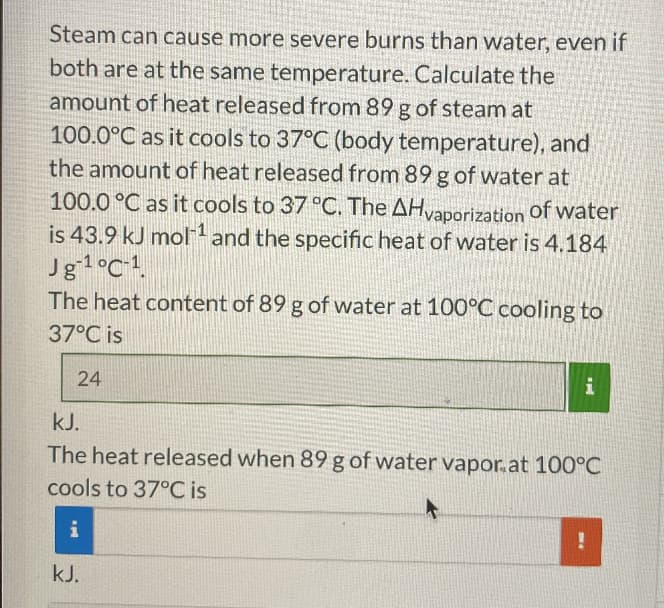Steam can cause more severe burns than water, even if both are at the same temperature. Calculate the amount of heat released from 89 g of steam at 100.0°C as it cools to 37°C (body temperature), and the amount of heat released from 89 g of water at 100.0 °C as it cools to 37 °C. The AHvaporization is 43.9 kJ mol' and the specific heat of water is 4.184 Jg1°C-1. The heat content of 89 g of water at 100°C cooling to of water 37°C is 24 kJ. The heat released when 89 g of water vapor.at 100°C cools to 37°C is kJ.
Thermochemistry
Thermochemistry can be considered as a branch of thermodynamics that deals with the connections between warmth, work, and various types of energy, formed because of different synthetic and actual cycles. Thermochemistry describes the energy changes that occur as a result of reactions or chemical changes in a substance.
Exergonic Reaction
The term exergonic is derived from the Greek word in which ‘ergon’ means work and exergonic means ‘work outside’. Exergonic reactions releases work energy. Exergonic reactions are different from exothermic reactions, the one that releases only heat energy during the course of the reaction. So, exothermic reaction is one type of exergonic reaction. Exergonic reaction releases work energy in different forms like heat, light or sound. For example, a glow stick releases light making that an exergonic reaction and not an exothermic reaction since no heat is released. Even endothermic reactions at very high temperature are exergonic.

Heat can be calculated using formula
q=ms∆T
q= heat
m= mass
s= specific heat
∆T= change in Temperature
Step by step
Solved in 3 steps









